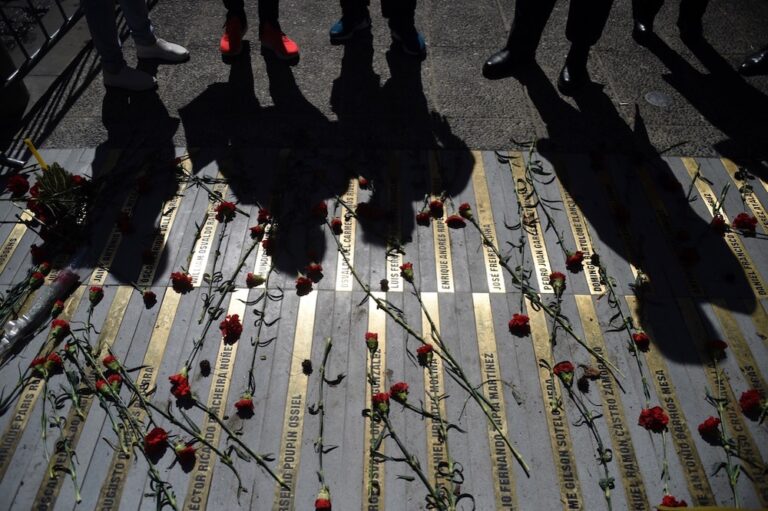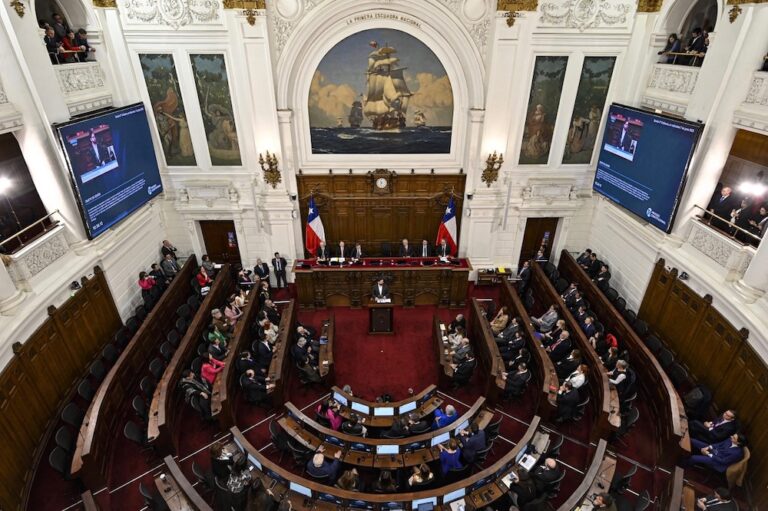Concerned about the explosive social climate, RSF urges the security forces to ensure control within their ranks and calls on the protesters to refrain from dangerous excesses.
(RSF/IFEX) – 15 September 2011 – As a four-month-old wave of student protests continues with no sign of letting up, RSF is worried by the increasingly frequent expressions of hostility towards journalists accompanying the demonstrations. The anniversary of the 1973 military coup on 11 September saw a surge in violence.
Concerned about the explosive social climate, the press freedom organization urges the security forces to ensure control within their ranks and calls on the protesters to refrain from dangerous excesses.
“Arbitrary arrests and targeted physical attacks against journalists had been rare during the demonstrations until the last three weeks,” RSF said. “The student movement, which shares the entire society’s criticism of the prevailing media model, continues to display unity and determination although the security forces are cracking down hard on their protests.”
“The Chilean spring could get darker as it goes on, especially for the journalists who are exposed both to the abuses of the carabinero police and the readiness of the most radical demonstrators to do battle. This situation requires vigilance from all parties to this conflict, who must not jeopardize the right to report the news. We call for immediate investigations into the most serious abuses that have already occurred.”
One of most noteworthy episodes has been the detention of Raúl Flores, the editor of the online magazine Dilemas ( www.dilemas.cl ), for six hours on 8 September in Santiago. He was following a march by secondary school students when he was arrested by a group of carabineros although he had previously explained that he was a journalist and had shown them his press accreditation. They erased all of his photos and sound recordings.
Omar Iturrieta, a correspondent of Australia’s Hispanoamerican Newspaper, and Cristobal Saavedra, a photographer who works for Reuters, were physically attacked in the capital during a general strike on 25 August. Although Iturrieta’s accreditation was visible, a carabinero hit him with his baton during a demonstration outside the education ministry. Saavadra was hit with a baton while covering the arrest of a group of students.
Carabineros also stormed Señal 3, a community TV station in La Victoria, south of the capital, on 25 August, attacking five employees and smashing some of its equipment ( http://www.youtube.com/watch?v=Sal2qz1EZjI ).
Security forces threatened to “open fire” on freelance photographer Ivan Alvarado on 1 September because of his presence at the occupation of the education ministry by a group of students. The same day, Reuters photographer Rodrigo Garrido’s equipment was damaged as he witnessed the arrests of several students and the attempted arrest of a fellow journalist outside the parliament building in Valparaiso.
Two Argentine journalists were attacked during events marking the 1973 coup on 11 September. After being hit by masked men, Mario Giordano of Canal 7 was taken to hospital, where doctors ordered him to stop working for two days. The assailants destroyed some of the equipment of his cameraman, Marcos Novo, who sustained a hand injury.
There is an ongoing controversy about an attack by radical students on the Communist Party’s headquarters on 13 September, during which Ronnie Fuentes, an Internet journalist and head of the Web TV The Clinic Online, and his assistant, José Mañodes, were violently attacked and robbed of their video material.
The violence against the journalists ( http://www.youtube.com/watch?v=9LdPhfvNfzg ) was blamed on members of the Communist Party, while the party itself blamed “fascists disguised as leftists.” If, as the journalists claim, party members did steal their material, the party’s leadership should insist that they return it.


